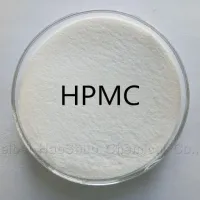Applications and Properties of Hydroxypropylmethylcellulose (HPMC)
Hydroxypropylmethylcellulose (HPMC) stands as a remarkable compound with diverse applications, spanning across various industries due to its unique properties. This article aims to explore the wide-ranging applications and key properties that make HPMC a crucial ingredient in sectors such as pharmaceuticals, construction, food, and cosmetics.
Properties of Hydroxypropylmethylcellulose (HPMC):
Water Solubility: Similar to its counterpart, Hydroxyethyl Cellulose (HEC), HPMC is water-soluble. This characteristic allows it to dissolve easily in water, forming clear and viscous solutions. This solubility is a fundamental property that contributes to its application in different industries.
Viscosity Control: HPMC is renowned for its ability to control viscosity. By adjusting the concentration of HPMC in a solution, manufacturers can achieve a wide range of viscosities. This property is particularly valuable in the formulation of various products, including paints, adhesives, and pharmaceuticals.
Film-Forming Capability: HPMC can form films, a quality that finds applications in industries such as pharmaceuticals and cosmetics. The films created by HPMC contribute to the overall performance and characteristics of the end product.
Thermal Gelation: One notable property of HPMC is its thermal gelation behavior. It undergoes gelation upon heating, providing a reversible gelation process. This property is harnessed in the pharmaceutical industry for controlled drug release formulations.

Chemical Stability: HPMC exhibits stability in the presence of various chemicals, making it compatible with a wide range of formulations. This chemical stability enhances its versatility and applicability in industries where exposure to different chemicals is common.
pH Stability: HPMC maintains stability over a broad pH range, making it suitable for formulations with acidic or alkaline conditions. This characteristic contributes to its widespread use in pharmaceuticals, where pH variations can occur.
Binder and Thickener: In the pharmaceutical and construction industries, HPMC acts as a binder and thickener. It is employed in the manufacturing of tablets, where it aids in holding the active pharmaceutical ingredients together, and in construction materials, where it enhances the properties of mortars and cement-based products.
Surface Activity: HPMC exhibits surface activity, making it effective in stabilizing emulsions and suspensions. This property is beneficial in the food industry, where it can be used to improve the texture and stability of products such as sauces and dressings.
Applications of Hydroxypropylmethylcellulose (HPMC):
Pharmaceuticals: HPMC finds extensive use in the pharmaceutical industry, serving as a key ingredient in the formulation of oral solid dosage forms. It is utilized as a binder, controlled-release agent, and viscosity modifier in tablets and capsules.
Construction Industry: In the construction sector, HPMC is a vital component in the production of mortars, plaster, and other cement-based materials. Its water retention properties improve workability, adhesion, and overall performance of these construction materials.
Food Industry: HPMC is employed in the food industry for its thickening and stabilizing properties. It contributes to the texture and stability of various food products, including sauces, dressings, and desserts.
Cosmetics: The film-forming capability of HPMC makes it valuable in cosmetic formulations. It is utilized in products such as creams, lotions, and hair care items to enhance texture and provide a smooth application.
Conclusion:
Hydroxypropylmethylcellulose (HPMC) has proven itself as a versatile compound with a wide array of applications, owing to its water solubility, film-forming capability, and viscosity control properties. Its role in pharmaceuticals, construction, food, and cosmetics showcases the adaptability of HPMC across diverse industries, making it a valuable ingredient in the formulation of various products. As technology advances, the exploration of new applications and the fine-tuning of existing formulations with HPMC are likely to continue, further emphasizing its importance in modern industries.

